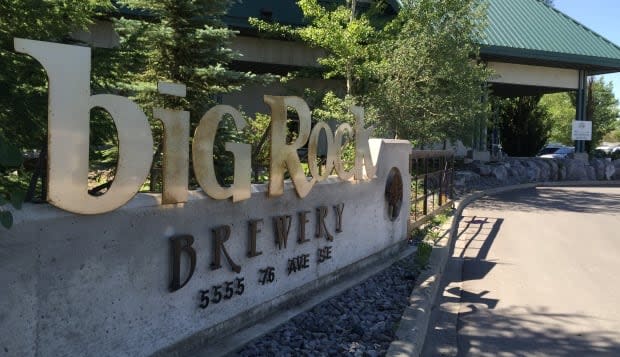Beer prices are bubbling up from more than taxes

The cost of beer has been going up in Canada, and faster than it did in years past, according to the monthly Consumer Price Index data from Statistics Canada.
And while large brewers and restaurant associations criticized a planned tax hike on alcohol that could have increased the prices Canadians pay, that excise tax is just one part of what is frothing up beer prices these days.
"The cans, the bottles, raw materials, such as the malted barley and the hops. Everything has kind of went up in price," said Neil Reid, beer researcher and professor of geography and planning at the University of Toledo in Ohio.
"I think that's been a big, big factor in these price increases that we've seen across the board," said Reid, who is often labelled the "Beer Professor" online.

"It's not just a case of prices going up but it's also the availability of some of these material inputs," explained Reid, who pointed out that in some regions there have been shortages of aluminum for canning, or carbon dioxide, which is used to carbonate or make beer fizzy.
A lack of availability can either drive up prices or make the product more scarce — or sometimes both, say brewers.
Beer prices fell in past years - not anymore!
Large and small brewers alike have said they held prices steady during the initial months COVID-19 pandemic, and Statistics Canada data reflects that to some extent.
For example, during parts of 2021, beer served in licensed establishments actually had a negative inflation rate, which means prices may have dropped. While this could be attributed to various lockdowns, it's also worth nothing that "beer inflation" was fairly flat until recent months, when it's hit five, six or close to seven per cent at times.
Calgary craft brewery Cold Garden Beverage Company has said they've had to adjust pricing upward because of the cost of nearly everything they use.
"Even all the random ancillary things like these shower curtains that we use to cover our glassware," said co-founder Dan Allard, when asked about what has driven costs up the most.

According to Allard, most breweries held off on large price hikes with the expectation that soaring costs for raw materials like grain would come back down. Since those source materials aren't going down, the price of liquid bread is going up just like the price of solid bread.
"Now everyone's trying to play catch up, their costs are not about to go down," said Allard. Big and small breweries alike are carefully considering what costs get passed onto the consumer, he said, and which costs are absorbed. Now customers are starting to see it.

The most surprising price hike for Allard isn't an ingredient in the beer, but it is a must-have for a brew pub.
"Glassware blows my mind," he said.
"Even the tables behind me that we had to buy during COVID, because they were wipeable ... they were $600 a piece during COVID. Before that, they were $300. They're still $600 for some reason," he said.
WATCH | Beer prices are getting frothier:
Changes to excise tax are still important, say craft brewers
Glassware and tables aside, the people who make beer are still asking for the federal government to look at taxation.
"The top three things that drive price ... No. 1 is tax. No. 2 is aluminum. And No. 3 is the price of malt," explained Brad Goddard, director of business development for Big Rock Brewery in Calgary and chair of the Coalition of Canadian Independent Craft Brewers.
The excise tax increase, as originally planned, would have been pegged to inflation. It was on track to increase by more than six per cent this year — a jump that would have made the total excise tax more than 37 cents per litre of beer.

Those excise fees are paid by brewers, wine and spirit makers, but the costs often filter down to consumers.
But the government announced in the budget that it would limit the increase to just two per cent for this year — far below the rate of inflation. There are estimates that place the impact of that tax hike as less than a penny per bottle of beer.
Goddard's coalition has proposed that the federal government adjust not just the rate of tax, but the system used. Under the current system, excise taxes can double if a craft brewer makes more than 2,000 hectolitres (or 200,000 litres) — even if they go over by a single litre.
"Craft brewers accept that we should pay tax, we just want it to be more gradual, remove the cliffs or flatten those cliffs out a bit more," said Goddard, who added that because of the current taxation system, many craft brewers actually limit the amount they produce to avoid the higher tax brackets.
According to Goddard, the federal government has been receptive to his industry's proposal, which he called "revenue neutral" in terms of the amount of tax collected.

 Yahoo Finance
Yahoo Finance 